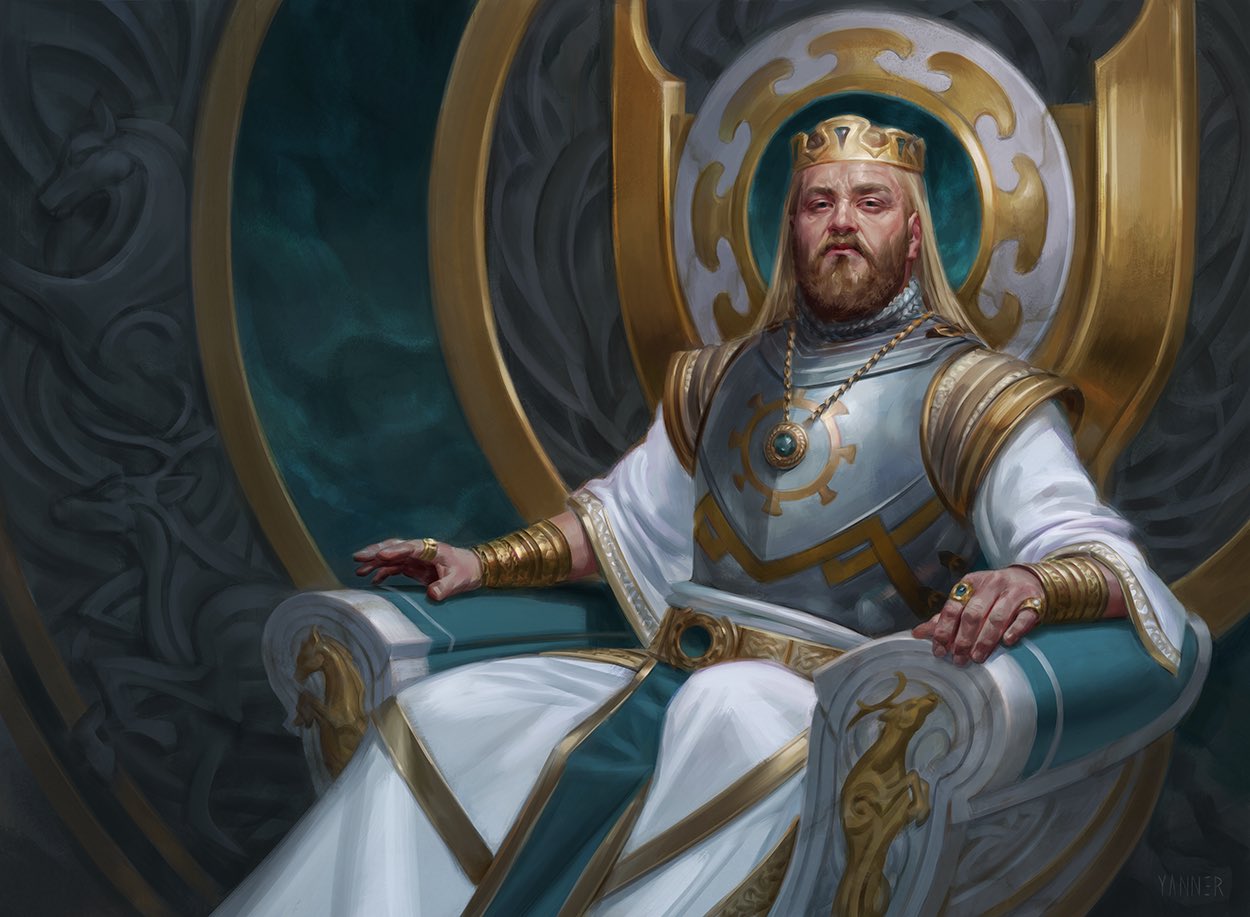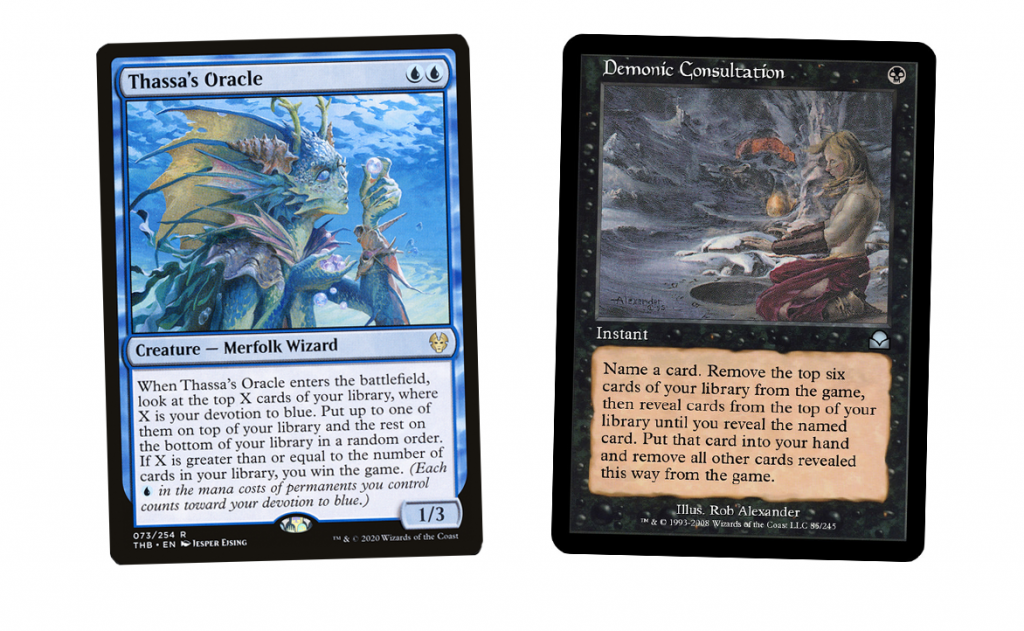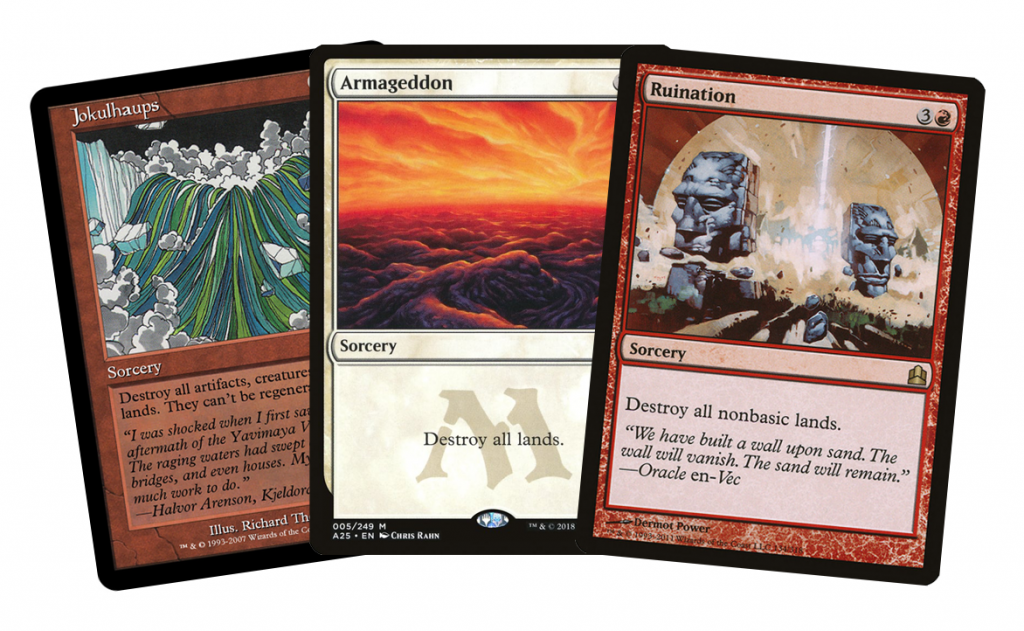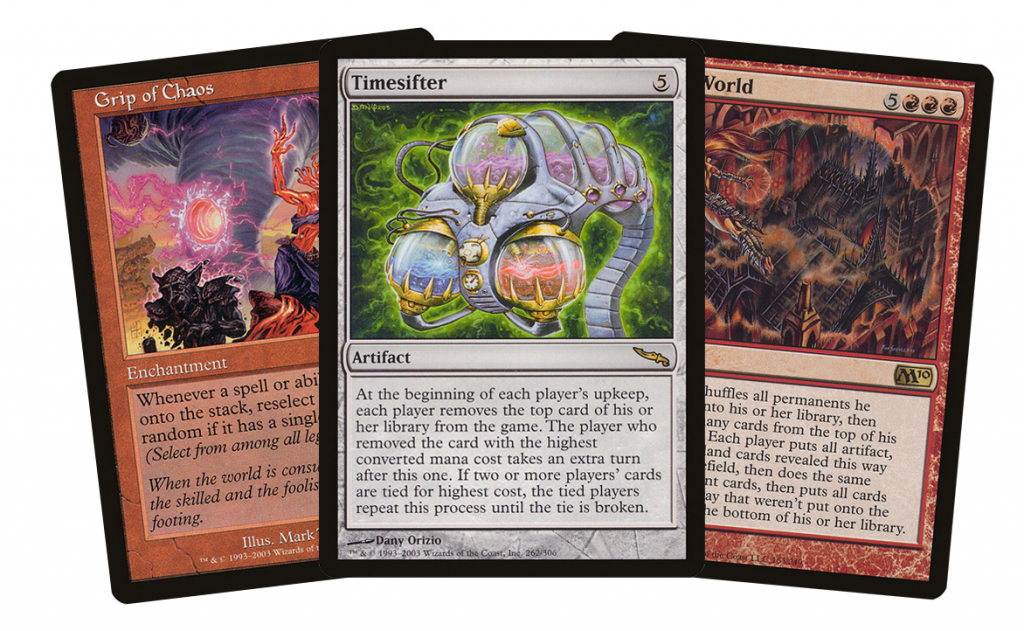For the most part, Commander is supposed to be a fun format. The rules committee philosophy frequently references this sort of idea, and even seems to consider not focusing on “fun-having” as some sort of abomination or aberration. People commonly Have Opinions about the Rules Committee, and said opinions are frequently polarizing.
My personal experience and philosophy of commander is that games can be fun so long as you sort of communicate what you consider fun beforehand. As commander is increasingly common, and games nights at game stores become more common, it’s increasingly important to talk about what is and isn’t fun for you. Unfortunately players aren’t always communicating using the same terms. “cEDH” means a variety of things to a variety of players, and for some reason many players seem to be loathe to have a realistic conversation about it, and will insist that they play cEDH or have a cEDH deck. Or there are frequent conversations about “is this commander cEDH?”, or “can this be a cEDH deck?”
In my opinion, cEDH decks are decks that use the optimal cards, regardless of cost – which usually means proxies – and that try to execute a strategy that maximizes the chance of winning. Which in turn means always choosing the optimum card for a slot. There’s no room for pet cards or fun mechanics in cEDH; it’s about winning, pure and simple. If there is a “better” card available to a player, in a cEDH deck it should be played. If you can run ignoble hierarch instead of llanowar elves, you should.
The Power Levels of cEDH
The PlayEDH discord calls these decks “Max Power” and I think that’s a useful distinction. They frequently feature many tutors, and try to win the game through combo cards, revolving around some group of cards that simply end the game, with minimal opportunity for opponents to interact. Often this is Thassa’s Oracle and Demonic Consultation .
High-power decks still revolve around ending games, but they feature more complex combos, maybe some “pet” cards, and generally significantly lower tutor density. In my experience most people claiming they are playing cEDH are really hanging out in this zone, what might be considered decks that are in the 6-8 range on a 10-point scale of power. Powerful strategies, strong cards, but not running every optimal card. Generally, the better set of these decks run instant-speed interaction and have a solid clear game plan that accomplishes a win, but often involve complex interactions or require 3-4 combo pieces , or revolve around storm strategies which, as powerful as they are, don’t seem to be able to compete at the highest levels with Thoracle.
Mid-power decks still feature synergies and a solid game plan with interaction, but with less consistency and speed.
Low-power decks continue the trend, but tend to use more expensive and slower sources of mana, with more expensive mana rocks and ramp effects, and no truly fast mana. They’re generally non-deterministic – players playing these decks tend to actually through their deck, rather than being set up to draw and fetch what they need.
Battlecruiser decks are truest to the origin of commander, simple playing big creatures and haymaker spells and turning things sideways after amassing a large force. These are inconsistent decks that don’t have a lot of synergies, and generally win through combat damage.
Regardless of power level however, there are a few strategies that players find to be near universally unfun.
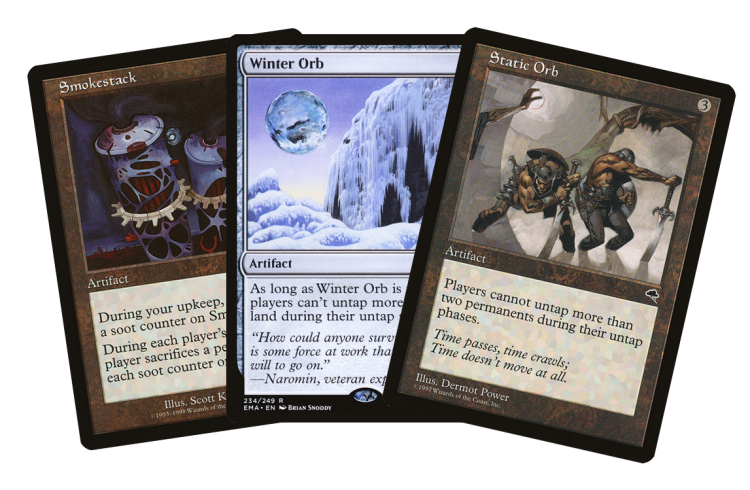
Stax effects generally slow the game down through resource denial or preventing opponents from casting spells, tutoring, or otherwise blocking their efforts to develop their game-plan and board state.
Mass Land destruction is basically just destroying all or almost all of your opponent’s lands.
Chaos decks rely on essentially flipping the board over and randomizing things.
Many players have issues with these strategies, and they’re all worth discussing before the game starts. Some decks just don’t want to grind out games against stax effects. Rule of law and its ilk can keep players from rapidly casting out their hands and then generating draw. The most powerful stax effects tend to rely on stopping untapping or increasing the casting cost of spells – cards like trinisphere and winter orb.
Generally speaking, it seems there’s a broad consensus that players want to play their strategy and more or less let other players play their strategies. Perhaps, somewhat like running a race, the purpose is to outrun your opponents, not fling caltrops at their feet or trip them.
All this is by way of an introduction to a deck that is absolutely designed to create a “hard lock” with spells, getting out of a couple of effects that will prevent your opponents from casting spells.
One of the most powerful spell preventers is Drannith Magistrate, who I sort of think of as Flashman
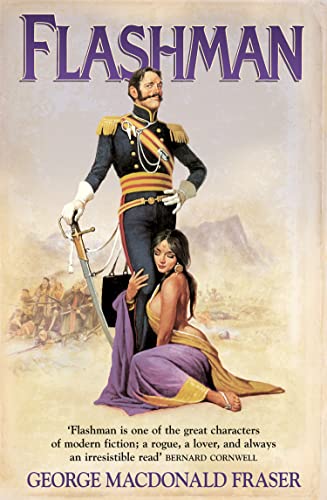
Flashman is an extremely odious, nasty, self-centered character from literature that had a large number of books written about him.
Our eponymous flashman, 
prevents casting from anywhere other than the hand, which includes the command zone. Our Flashman prevents casting from the graveyard, or the library. And there are a number of effects that force all spells to be cast from exile. Since Flashman is an asymmetric effect we can pair him with cards like knowledge pool and possibility storm and this will prevent your opponents from casting spells entirely. Useful the magistrate doesn’t counter the spell, as some spells are uncounterable, Boseiju, who Shelters All can make spells uncounterable, and there are other ways to generate the same effect.
Like Flashman, Drannith Magistrate is really obnoxious, and players will quickly move to blow him up, so make sure you can protect him or reanimate him if he dies.
Second, there’s search prevention. Search prevention in and of itself is a powerful stax-lite effect, players will run tutors and fetchlands, stopping them from finding things is really good. Opposition Agent, and Stranglehold prevent searches or even more powerfully let you control them and exile the cards. If players are forced to search instead of draw, via Maralen of the Mornsong, they can’t draw. This is more of a soft-lock, since players can still cast their commander and cards in hand, and may well have the ability to kill either your Maralen or your search preventer. Ashiok, Dream Render won’t work for this as your opponents won’t control the Maralen search.
Karn, the Great Creator prevents opponents from activating the activated abilities of artifacts. In combination with Mycosynth Lattice, everything becomes an artifact, that can’t be activated, including lands. Again, this is a soft lock, but it’s a pretty strong one. Opponents will still have what creatures they have on the board, and can cast “free” spells like Deadly Rollick, or Force of Vigor. Nonetheless, this lock will most likely win you the game.
Teferi, in addition to having a lot of crazy Planeswalkers, has two versions that affect when your opponent can cast spells – both his initial debut as a creature Teferi, Mage of Zhalfir and Teferi, Time Raveler, which permit your opponents to cast a spell only any time they could cast a sorcery.
307. Sorceries
307.1. A player who has priority may cast a sorcery card from their hand during a main phase of their turn when the stack is empty. Casting a sorcery as a spell uses the stack. (See rule 601, “Casting Spells.”)
This means, in combination with cards like Knowledge Pool, that your opponents can’t cast spells. This is a fairly hard lock. Since casting the “free” spell is a triggered ability, the stack is not empty, as the ability is still resolving. Your opponents can’t cast. Possibility Storm works the same way. Void Mirror will also prevent the casting since no colored mana will be spent to cast it, however, this effect is not asymmetric, so it will also prevent you from casting spells.
To get back to deck philosophy, and to help guide the rule 0 conversation, I will say that I do not, and many players I’ve spoken to, do not, so much mind mass land destruction, chaos, or even things like Worldfire as long as you are doing it for a reason. If your deck runs Wrenn and Seven, Ranamup Excavator, and Crucible of Worlds, and can recover from an Armageddon better than your opponents, and win the game that way, people mostly don’t seem to mind.
So what is the win con of a lock deck?
He’s big and bad, he’s a king, he’s returned, he’s got a fat 5/5 body. He has 5 activated abilities.

Just beat them to death with your commander. A commander who can get haste and trample, reanimate, and really importantly, get bigger and bigger. If you set up a lock with Kenrith, and even you are locked out of spell casting, you can just keep pumping Kenrith up and then trample over your opponents creatures, and kill them with commander damage.
And that’s pretty much the deck. Rapidly ramp into some kind of stax effect, find the two pieces of a lock, and try to get them out safely. Once you do use Kenrith and beat them to death.
List of locks
Opponents can’t cast spells:
Drannith Magistrate or Teferi, Mage of Zhalfir or Teferi, Time Raveler and either: Knowledge Pool or Possibility Storm or Uba Mask
Opponents Spells will be countered:
Lavinia of the Tenth and either: Knowledge Pool or Possibility Storm or Uba Mask
Nobody can cast spells:
Void Mirror and either: Knowledge Pool or Possibility Storm or Uba Mask
Opponents can only cast spells in hand or command zone:
Drannith Magistrate or Teferi, Mage of Zhalfir or Teferi, Time Raveler and Omen Machine.
Players can only cast spells in hand or command zone:
Omen Machine and either Void Mask
Your opponents cant activate the activated abilities of artifacts (includes lands) and everything is an artifact:
Karn, the Great Creator and Mycosynth Lattice
Players can’t draw
Maralen of the Mornsong and either Stranglehold or Opposition Agent
There are also some other interactions, Shared Fate will force your opponents to draw cards into exile and then prevent them from being cast, hopefully, with Drannith Magistrate. These weaker locks can be replaced with more hexproof, more ramp, more interaction, or more counterspells.
If you know of any other good locks, please share them in the comments! Or email us at contact@goonhammer.com.
